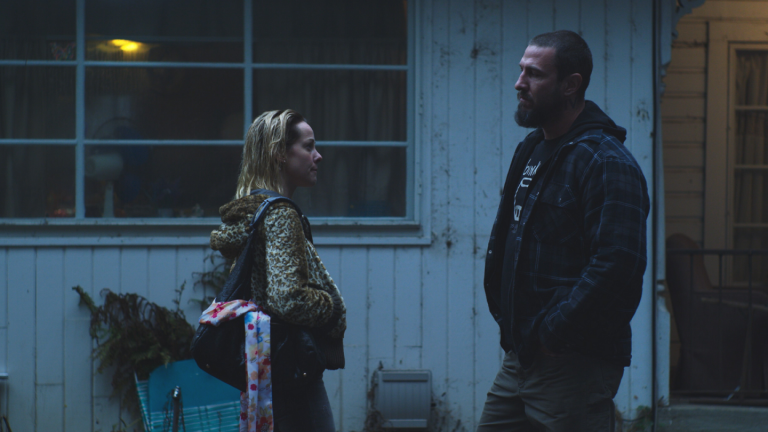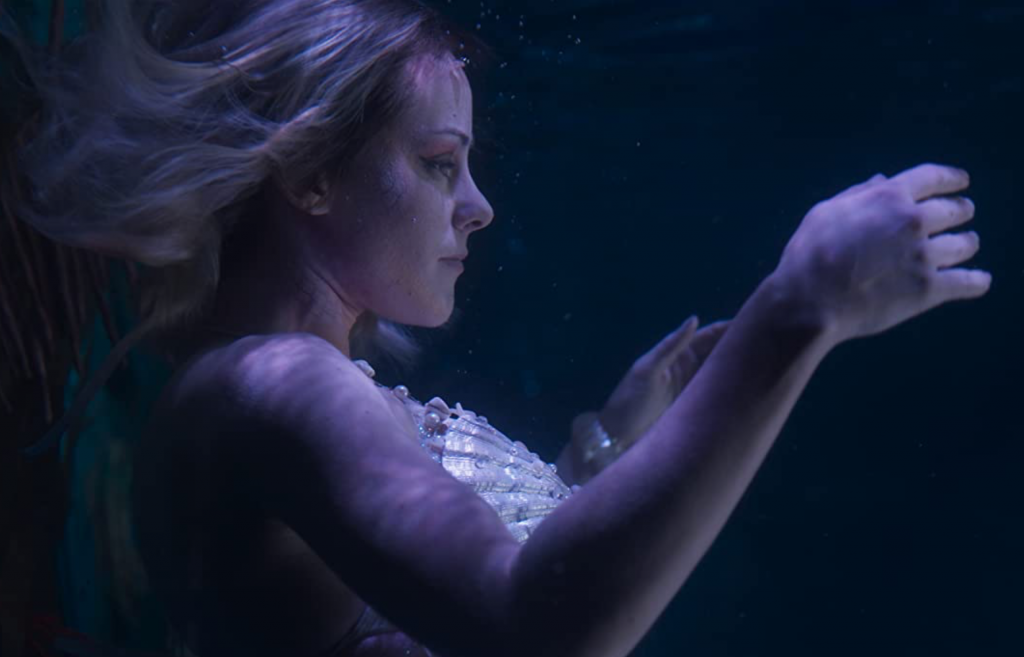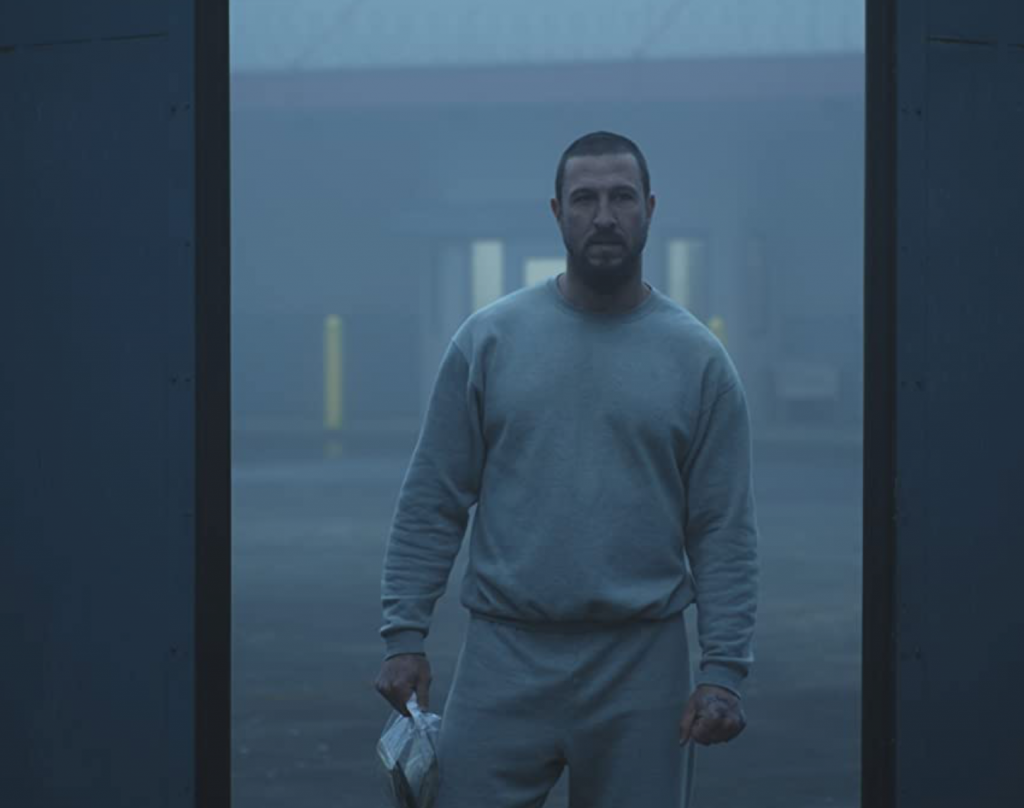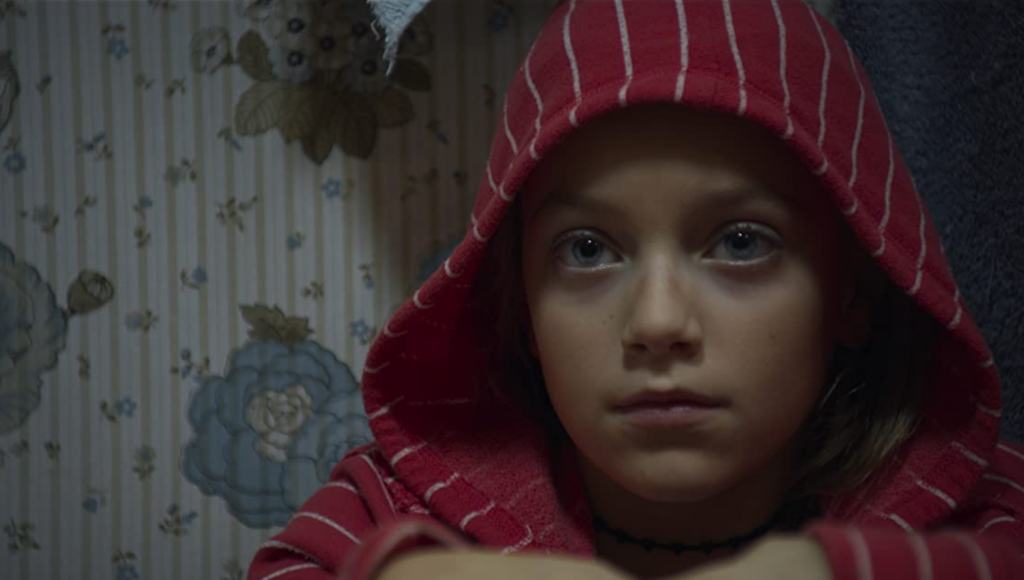
Jena Malone has been acting since she was twelve years old, earning accolades for her first performance in the TV movie Bastard Out of Carolina in 1996. Now, two and a half decades later, she’s on the other side, playing the adult and mother opposite talented young actors, in the Tribeca drama Lorelei, which was originally slated to premiere during last year’s festival.
I had the chance to speak with Malone about how this story modifies gender roles and the joy of being able to constantly try new things as an actor.

An Exclusive Interview with Actress Jena Malone
Q: What attracted you to this film and to this role?
JM: It was a great script. I really liked Sabrina’s vision. I think she’s an incredible writer. It’s exciting to get an opportunity to work with first-time filmmakers. I liked the reclamation work it was talking about with parents and reclaiming their joy. It was a story that I hadn’t really seen before. I liked the reclamation work for a man in this story of how to reclaim being vulnerable, what it is to be a father, letting your dreams die and be reborn again. I think there are really some cool themes.
Q: This film feels different from a lot of post-prison stories. It doesn’t necessarily flip the gender roles, but you don’t have this macho guy and it’s a little more intimate. Do you think this is a very unique approach or do you feel that you’ve seen other films like this in the past?
A: No, I’ve never seen anything like this. I think it seems pretty traditional in the beginning. He may be a man that we’ve seen before, but his journey into becoming a father and a partner is one that I have never seen, particularly because the way the Dolores character is written, if she was a man and had just decided to leave her kids with a lover, that story we’ve seen so many times, of men leaving their family to go and pursue their dreams. We’ve never really seen the opposite. It’s interesting for a man to be the one left behind in a caretaking position, having to right the wrongs of the mistakes that can happen just from being sloppy humans, as we all are sometimes. I like it. I feel like it really delivers a lot of catharsis for preexisting biases towards men and women, particularly in parenting roles.
Q: What did you relate to most about Dolores, and what did you find most challenging about portraying her?
JM: I think it’s always hard to step into spaces of shame, when you have to portray someone who’s moderately despicable. Where their actions seem questionable, or they’re making mistakes that are hurting other people. I think that’s a hard thing to shoulder. But it’s so important, because we all have to live through that and go on through the other side of being like, okay, that was sloppy, is everyone good? Let’s keep going. I think it’s also in my journey in parenthood. You don’t want to make mistakes. You don’t want to scar your children. You don’t want to be bad mom. You want be this great person, and you just can’t be all the time. It was cathartic for me to play a woman who just naturally was not the best at it, who was really just trying to survive. It allowed me to love that and not feel as shameful about those really easy mistakes of parenting.
Q: You have a really great costar in Pablo Schreiber, who I think I first saw in Orange is the New Black, where he’s also in a prison context, but so despicable and terrible and irredeemable. What can you share about your scene partner?
JM: He’s just so giving. He also transformed his whole body for this. He put on a lot of weight. I had never met him previously. It’s funny, I just saw him the other night at a little cast-and-crew Tribeca drinks thing, and I didn’t even recognize him! I was like, oh, this is who you are? I had no idea. I met him in a different shape and body and a different embodiment of his masculine. It made me feel very protective and in awe of what he gave, and just how vulnerable that was. That transformation, and how he still found bravery in it, and bravery in how vulnerable that was. I think he does such a wonderful performance. It was really nice to see.

Q: Especially as someone who started acting at a young age, how do you feel about some of your younger costars in this film?
JM: I love them. They were all super game and ready for it. I feel like you don’t have to be trained or have worked for a thousand years to be a good actor. You just have to have the want, and good people around you to show you how to do it. Stand here, do this, don’t cry yet – the camera’s not on you! There are certain very technical things. I love working with kids. Even before a kid, I was very mama bear on set. If there’s ever any actors that are children, I’m kind of like, okay, they’re mine. I’ll take them. I know what they need, I know what we’ve got to do. I feel protective but also inspired by their journey of discovery, and want to try to make it the best that we can.
Q: There is definitely some humor to be found in this film, like the fact that Dolores’ children are each named after a different shade of blue. How did you balance the lightheartedness with the very serious subject matter?
JM: That’s sort of Sabrina’s job. As an actor, you can’t really balance tone. You just have to give a lot of choices, and then hopefully the tone can be strung together by the edit and the final piece. That’s life, you’re crying, you’re laughing, you’re shitting, you’re falling over. It’s everything all together. You just have to be brave enough to allow those moments to come up and not feel like you’re hitting a moment. Okay, this is this, here’s the joke, get ready for it. Because then you get in it and the joke’s not funny. What’s funny is actually right before you started crying, that’s actually what was much funnier and endearing. I never think about tone when I’m acting.
Q: You were supposed to have this film premiere at Tribeca last year. What does it feel like having had to hold onto the film until this moment, and how does it feel now that it’s happening?
JM: It’s really exciting. I think everyone’s pretty excited to have some form of normalcy come back into our lives. It feels like, big or little, we have a lot to celebrate together. It feels nice to have a real thing to celebrate, instead of just celebrating getting in an elevator, or celebrating having dinner with a friend. I feel like I’m in a constant space of awe right now of awe and celebration, and so it feels nice to have a real thing that feels normal to celebrate, like having a film come out. It’s nice to be able to share it with the world. I think that independent films really got pushed to the side and didn’t have as big of a viewing space throughout the pandemic, and I think that it’s usually through independent films that we find most of our emotional catharsis. I’m really hoping that we can dive back into that world because there’s so much that we need to parse through.
Q: Do you feel like this film is particularly well-suited for the Tribeca Film Festival?
JM: I don’t know. I don’t think it’s well-suited or ill-suited. They usually take on really cool, human, beautiful films. This is definitely human beautiful.

Q: You’ve had so many memorable roles in the past. I think one of my favorites is The United States of Leland.
JM: Okay, wow, that’s a blast from the past.
Q: And of course Donnie Darko, which is something I saw when I was young that really made an impression. Do you have any favorites, or do you find there are particular roles that stick with you that either influence what kind of roles you keep getting or that people recognize you from?
JM: No. I don’t know. I think that’s one of the coolest things. In twenty-six years, people respond to different films. Yeah, there’s the more popular films, but oddly, there’s no one thing that everyone’s like, that’s what I know you from or that’s what I loved. It’s such a broad collection. It’s cool, and makes me really believe in the shelf life of film. You can make something twenty-years prior and it’s still affecting different generations and people at different times in their lives.
Q: Is there anything you feel like you really want to try that you haven’t done yet with film?
JM: Constantly. I feel like I’ve done so little, actually. Also because it’s embodiment work, and you can only embody what your body can embody. I’m thirty-six, and I’m in a different body. It feels like a whole new world. Whereas when I was younger, I was playing younger roles, and teenage roles. In the twenties, and all that stuff. The older you get in it, the world kind of deepens, and I can play any adult role that I want. It’s cool.
Q: Do you have any projects coming up besides this one?
JM: Yeah, there’s a film called Porcupine. It’s an independent film that we made in upstate New York, right before the pandemic. That should be coming out, doing the festival circuit in the fall. There’s a series, the last season of Goliath, that’s going to be released this year that I got to be a part of, which is cool. We shot it throughout the pandemic, which was a wild occasion. Right now, I’m working on a top-secret horror project with a former collaborator, Carter Smith. We did The Ruins together. That’s it, I guess.
Q: How do you think shooting during a pandemic affects the finished product, and do you think it’s something that will be noticeable in terms of storylines or how things look going forward?
JM: No, I don’t think it will be noticeable. I think it will be more subjective, or contextual. People will be like, oh, that was shot in the pandemic. But we haven’t seen many things that are coming out, so we have yet to determine whether it really changes the product, or how it feels. But it’s still the same thing. Set life is pretty unique. It’s very hard to take away what it is, even through pretty dire circumstances of having to be separate and masked and sheathed. When I was on set, it was still a film set. The camera doesn’t change. Acting doesn’t change. It’s just the behind-the-scenes that changes, I guess.
Q: While you’re at Tribeca, have you had the chance to see any other films?
JM: I haven’t. I wanted to go today, but then I had to do these Zoom things. I might try to go, but I think it’s almost all over.
Q: Well, I’m sorry to take you away from those, but I appreciate you speaking with me today.
JM: Yeah, of course!
The actual video interview.
Here’s the trailer for the film:
Lorelei makes its North American premiere at the Tribeca Film Festival as a 2020 Official Selection.

